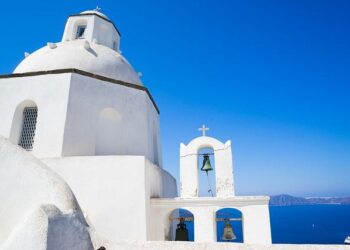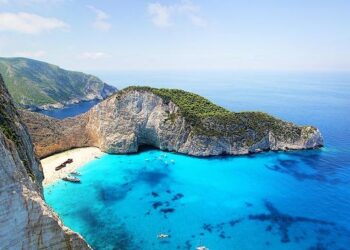Greece has officially approved approximately 1.5 billion euros in new tourism investments aimed at revitalizing its economy and strengthening its position as a premier travel destination. This significant financial commitment underscores the government’s strategic focus on tourism as a key driver of economic growth and job creation in the post-pandemic era. As the sector plays a critical role in Greece’s GDP, these investments are expected to enhance infrastructure, boost visitor arrivals, and promote sustainable development. Here is why this move matters for both Greece and the global travel industry.
Greece’s Strategic Tourism Investment Plan Targets Sustainable Growth and Job Creation
The newly approved investment plan allocates approximately Ōé¼1.5 billion towards transforming Greece’s tourism sector with a sharp focus on sustainability and long-term economic resilience. Priority projects include the modernization of infrastructure, promotion of eco-friendly accommodations, and enhancement of cultural heritage sites to attract a diverse range of international visitors. This forward-thinking approach not only aims to conserve the environment but also ensures that local communities benefit from consistent employment opportunities throughout the year, rather than seasonal spikes.
Key components supported by the plan encompass:
- Development of green hotels and resorts with renewable energy integration
- Expansion of digital tourism platforms to reach wider audiences
- Training programs to upskill the workforce in sustainable hospitality practices
- Preservation initiatives for historic landmarks to boost cultural tourism
These strategic efforts are poised to generate a ripple effect across regional economies, with forecasts estimating the creation of over 25,000 new jobs within the next five years. Below is a simplified overview of the funding allocation breakdown:
| Category | Investment (Ōé¼ million) | Focus Area |
|---|---|---|
| Infrastructure Upgrades | 600 | Transportation and Facilities |
| Eco-friendly Developments | 400 | Green Hotels & Resorts |
| Workforce Training | 250 | Skills & Employment |
| Cultural Preservation | 250 | Historic Sites & Museums |
Key Sectors to Benefit from the Boost in Tourism Funding and Infrastructure Development
The recent infusion of nearly Ōé¼1.5 billion into tourism investment marks a transformative phase for several pivotal sectors within Greece’s economy. Hospitality stands to gain significantly, with funds earmarked for upgrading hotels, resorts, and boutique accommodations to meet higher international standards. This modernization effort will enhance guest experiences, encouraging longer stays and repeat visits, thereby increasing overall revenue. Simultaneously, the transportation sector is poised for critical advancements, including airport renovations, expanded ferry services, and improved road networks aimed at better connecting tourist hotspots. These developments are expected to streamline travel logistics and open up less-explored regions to visitors.
Beyond these primary beneficiaries, the investment will also catalyze growth in ancillary industries such as local artisans and food suppliers, who will see increased demand as tourism flourishes. Moreover, the sustainable tourism sector has gained prominence in government plans, with funds allocated to eco-friendly infrastructure and preservation projects, aligning economic growth with environmental stewardship. The following table summarizes the key sectors and their anticipated benefits:
| Sector | Key Investment Areas | Expected Impact |
|---|---|---|
| Hospitality | Hotel upgrades, luxury resorts | Enhanced guest experience, higher occupancy |
| Transportation | Airports, ferries, roads | Improved accessibility, regional connectivity |
| Local Artisans & Food | Market access, product promotion | Economic inclusion, cultural preservation |
| Sustainable Tourism | Eco-infrastructure, conservation | Long-term growth, environmental protection |
Recommendations for Stakeholders to Maximize Returns and Enhance Visitor Experience
To capitalize on Greece’s substantial tourism investments, stakeholders should prioritize collaborative innovation and sustainable practices. Developing integrated experiences that combine history, culture, and natural landscapes will engage visitors more deeply, encouraging longer stays and repeat visits. Embracing digital technologies-from AI-driven itinerary planning to augmented reality tours-can also streamline visitor engagement, making travel smoother and more personalized. Meanwhile, investing in local workforce training will empower communities, ensuring high-quality service and authentic cultural exchange.
Moreover, stakeholders must adopt a strategic approach to infrastructure enhancement by focusing on accessibility and environmental impact. Improving transport links, especially for remote destinations, will ease travel logistics and reduce bottlenecks during peak seasons. Simultaneously, implementing eco-friendly initiatives such as waste management systems and energy-efficient facilities can position Greece as a leader in responsible tourism. Below is a simple framework for stakeholder focus areas designed to maximize returns and elevate the visitor journey:
| Focus Area | Key Actions | Expected Outcome |
|---|---|---|
| Experience Innovation |
| Increased visitor engagement |
| Community Empowerment |
| Authentic cultural exchange |
| Infrastructure & Accessibility |
| Smoothed visitor flow |
| Environmental Sustainability |
| Strong green tourism reputation |
Wrapping Up
As Greece moves forward with this substantial injection of approximately one and a half billion euros into its tourism sector, the country aims to not only revitalize its economy but also reinforce its position as a leading destination in the global travel market. These investments promise to enhance infrastructure, create jobs, and attract a new wave of visitors, making the development a significant milestone for Greece’s sustained economic growth. Stakeholders across the industry will be closely watching how these funds translate into tangible benefits for both local communities and international travelers in the years to come.















